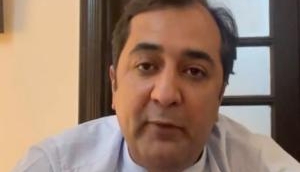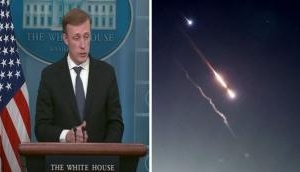Meet Theresa May, Britain's new prime minister

Traditionally in British politics, it was anticipated that Prime Ministers would occupy two of the three large governmental positions before becoming Prime Minister, those positions being Home Secretary, Foreign Secretary and Chancellor of the Exchequer. However, many Prime Ministers have not held more than one of those positions, and some have held none.
Tony Blair had famously never held a government position before becoming Prime Minister, as the Labour Party had been out of power for the entire duration of his career as an MP. Cameron, too, had never held a Cabinet position before becoming Prime Minister, although he had been a special adviser to Norman Lamont while he had been Chancellor. In modern times, only Jim Callaghan (1976-1979) and John Major (1990-1997) had fulfilled the traditional apprenticeship of government.
Waiting for the vision
For May, there will be no "third way" or "Liberal Conservatism". She is seen as being to the right of Cameron, who represents the more centre-right element of the party.
We can expect May's leadership to be defined by the Brexit talks. May has cast herself, not just since the referendum vote, but since her arrival in parliament, as a steady pair of hands. She will need to live up to that reputation in a political environment which is unpredictable and tumultuous.
The lack of a longer leadership campaign means that May has not been pressured on any of her policies, nor has she had the opportunity to explain and justify them to the party and the public.
It seems likely that Britain's new PM will attempt to "steady the ship", securing Britain's relationship with the EU. She said as much in a speech outside parliament when her leadership was confirmed. Brexit, she said, means Brexit, and securing a good deal must be the top priority.
But she will also have to heal her party's nasty wounds. And even if she didn't say as much, this problem will have to come first - at least chronologically. The Conservatives have been bitterly divided over the European issue for many years and the referendum has only deepened the rift.
So, before starting protracted negotiations with the EU and various other key trading nations, May will need to bring peace to her own team. And while her first cabinet may give us a hint as to her intentions, it may be some time before her vision for Britain becomes clear.
![]()
Victoria Honeyman, Lecturer in British Politics, University of Leeds
This article was originally published on The Conversation. Read the original article.
First published: 12 July 2016, 19:20 IST





![BJP's Kapil Mishra recreates Shankar Mahadevan’s ‘Breathless’ song to highlight Delhi pollution [WATCH] BJP's Kapil Mishra recreates Shankar Mahadevan’s ‘Breathless’ song to highlight Delhi pollution [WATCH]](http://images.catchnews.com/upload/2022/11/03/kapil-mishra_240884_300x172.png)

![Anupam Kher shares pictures of his toned body on 67th birthday [MUST SEE] Anupam Kher shares pictures of his toned body on 67th birthday [MUST SEE]](http://images.catchnews.com/upload/2022/03/07/Anupam_kher_231145_300x172.jpg)






